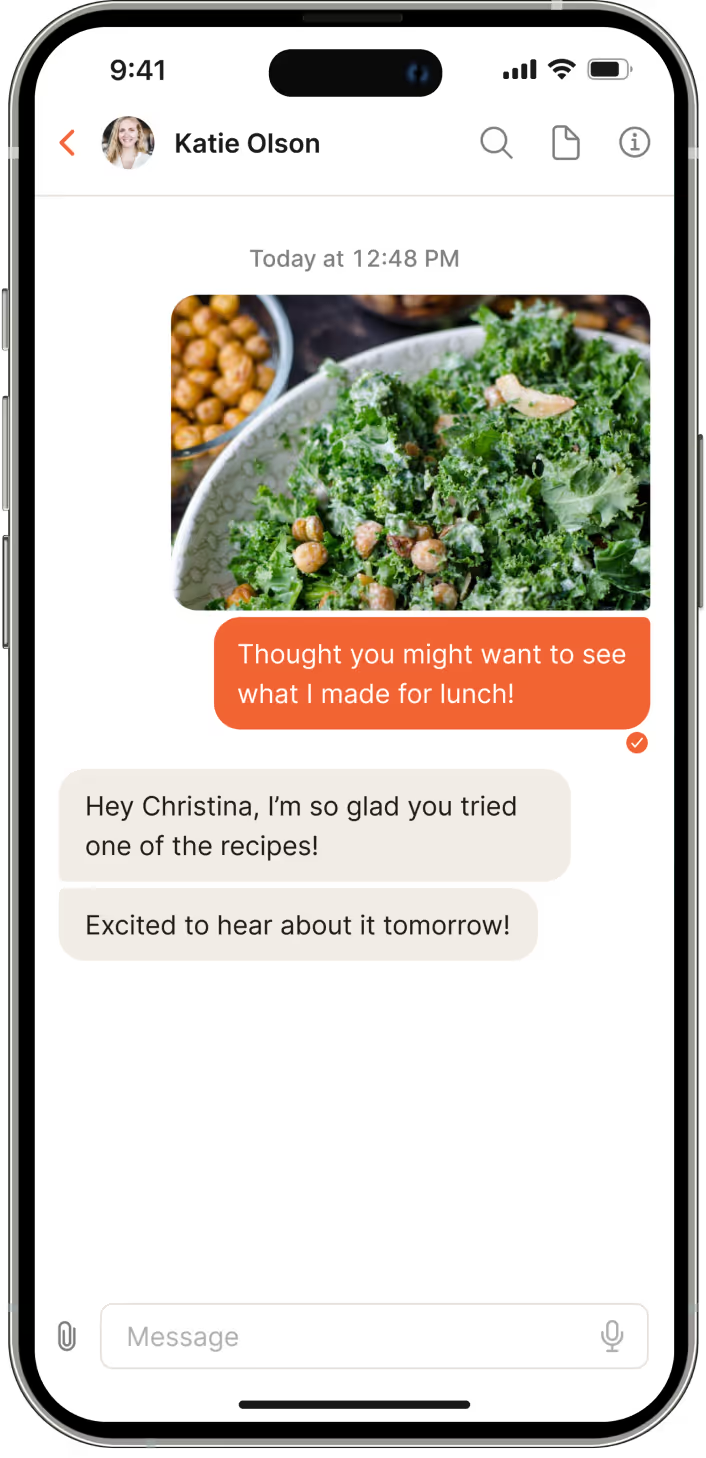Best Celiac Disease Nutritionist Near Me
94% of Nourish patients pay $0 out of pocket!


Our team of dietitians can support all areas of your health
Our team of nutritionists are skilled in numerous specialties. Whether your needs revolve around sports, weight loss, a chronic illness, or navigating a pregnancy, our professionals are prepared to provide the right nutritional guidance.









Personalized nutrition planning
We offer virtual one-on-one sessions with dietitians to discuss preventative actions that can be taken to address your health concerns. We educate, assess lifestyle changes, help plan your nutrition, and support our clients toward long-lasting success using personalized nutrition counseling.
Convenient, virtual appointments
Receive the highest quality care wherever you are most comfortable. You get access to your dietitian virtually anytime, anywhere. No more driving to appointments. No more waiting around.
Avoiding future complications
The payoff you’ll see for adjusting your lifestyle with nutrition counseling will be tremendous for your health. You’re less likely to suffer from a heart condition, kidney failure, and other serious conditions with the proper discipline and determination that we help provide.
We’ve got answers.
Still deciding if we’re right for you? These frequently asked questions may help.

How can I find a <Name> dietitian who accepts my insurance?
Nourish has <Name> dietitians in-network with major insurers like Blue Cross Blue Shield, United Healthcare, Aetna and Cigna. 95% of Nourish patients pay $0 when using insurance.
Are video visits with a dietitian online for <Name> covered by insurance?
Check your coverage to see if Nourish accepts your insurance plan.
What to expect during a visit with a dietitian that specializes in <Name>?
During your first appointment with a dietitian, you can expect to review your medical history, eating habits, and lifestyle. You’ll get to know your dietitian and you’ll have the opportunity to ask them any questions you have.
How can I find an online video visit with a dietitian that can help with <Name>?
Nourish offers completely virtual appointments that can help address <Name>.
How can I book a nutrition appointment online for <Name>?
Nourish offers completely virtual nutrition appointments and is covered by insurance. You can find a dietitian that’s right for you and filter by condition.
How can I see a dietitian that can help with <Name>?
Nourish has dietitians that specialize in <Name> that can help. Nourish uses evidence-based, personalized nutrition therapy so you feel your best.
A registered dietitian can also help with the following related <Name> conditions:
What is Celiac Disease?
A celiac dietitian educates patients about celiac disease, explaining how it affects the body, the importance of adhering to a strict gluten-free diet, and the potential consequences of gluten exposure. This foundational knowledge empowers individuals to make informed decisions about their health and dietary choices.
Gluten is a protein found in barley, oats, wheat, and rye. Eating gluten triggers the immune response within your small intestine, which may lead to bloating, fatigue, weight loss, diarrhea, and other symptoms.
Over half of all adults with celiac disease will also have symptoms unrelated to the digestive system, including:
- Anemia
- Osteoporosis
- Mouth ulcers
- Fatigue
- Headaches
- Joint pain
- Reduced spleen function
Over time, the disease caused by exposure to gluten damages the small intestine to such an extent that it can no longer absorb certain nutrients. Without the support of a nutritionist for celiac disease, complications can become severe.
While there is no cure for celiac disease, adopting a strategic and balanced diet can manage symptoms and support the healing of your digestive system. Enlisting the help of a celiac disease nutritionist can give you the knowledge, support, and accountability required to live a healthy lifestyle.
How a Celiac Dietitian Can Help
A celiac dietitian educates patients about celiac disease, explaining how it affects the body, the importance of adhering to a strict gluten-free diet, and the potential consequences of gluten exposure. This foundational knowledge empowers individuals to make informed decisions about their health and dietary choices.
Reading Food Labels
One of the critical skills a celiac dietitian imparts is how to read and interpret food labels. They teach clients how to identify hidden sources of gluten in ingredient lists and recognize gluten-free certification labels, ensuring they can confidently select safe products.
Personalized Meal Planning
A celiac dietitian creates personalized meal plans tailored to the individual's nutritional needs, lifestyle, and preferences. These plans ensure a balanced intake of essential nutrients, compensating for any deficiencies that may arise from eliminating gluten-containing foods.
Managing Cross-Contamination with Celiac Disease
Cross-contamination is a significant concern for individuals with celiac disease. A dietitian can educate clients on safe food handling practices, such as using separate utensils, cookware, and preparation surfaces to avoid gluten exposure in the kitchen.
Dining Out Safely
Eating out can be challenging for those with celiac disease. A celiac dietitian can provide strategies for dining out safely, including how to communicate dietary needs to restaurant staff, choosing gluten-free-friendly establishments, and identifying potential risks in different cuisines.
Supporting Long-Term Health with Celiac Disease
Regular follow-up appointments with a dietitian allow for monitoring progress and making necessary dietary adjustments. As individuals' needs and health status change, the dietitian can modify meal plans and provide ongoing support to ensure continued adherence to a gluten-free diet.
Addressing Gastrointestinal Symptoms
A celiac dietitian can help manage gastrointestinal symptoms that may persist despite following a gluten-free diet. They can identify other potential dietary triggers, such as lactose intolerance or FODMAP sensitivities, and adjust the diet accordingly to improve digestive health.
Coping with Social and Emotional Challenges
Living with celiac disease can be socially and emotionally challenging. A dietitian can offer support and practical advice for dealing with social situations, such as attending parties, traveling, and managing peer pressure, helping clients feel more confident and less isolated.
Connecting with Support Networks
A celiac dietitian can connect clients with support networks, such as local celiac disease groups, online communities, and advocacy organizations. These resources provide additional support, information, and a sense of community for individuals managing celiac disease.




%20Logo%20-%20vector69.com.svg)























.avif)
